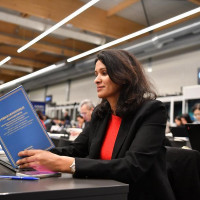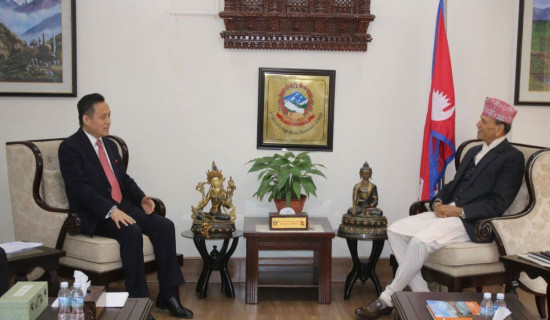- Thursday, 26 February 2026
Marriage With Dalits Is Still A Taboo?
Despite laws criminalising caste-based discrimination and untouchability, incidents of broken marriages, displacement and violence continue in Nepal. In Rolpa, police constable Resham Pariyar married Kamala Kunwar of Arghakhanchi under Vedic traditions. However, just 18 days after registering their marriage, Kunwar's family forcefully took her back with the intention of breaking the union.
The parents of Sarita Poudel of Nuwakot filed a complaint with the police, accusing a Dalit boy, who tied a nuptial knot with her, of kidnapping her. Two days later, they snatched their daughter from the boy's family, breaking the marriage. Another case from Sindhupalchok shows how caste-based discrimination goes deep. Santosh Acharya threw Kalpana Rijal of Kavre out of the house within three days of their marriage after finding that she belonged to a Dalit community.
Recently, the trend of men disappearing within a few days of marrying Dalit girls has been increasing in the country. The intention is to end such marriages. The problem is not just limited to ordinary citizens. Reports suggest that politicians who once advocated equality and social change - including some Maoist leaders and cadres who had inter-caste marriages to set an example of social change during the armed conflict - are now breaking their inter-caste marriages, citing caste differences.
This trend undermines the Caste Based Discrimination and Untouchability (Offences and Punishments) Act, 2068 BS, which prohibits and punishes all forms of caste-based discrimination and untouchability. Even when a case is registered under pressure from Dalit rights activists, verdicts often favour non-Dalit perpetrators. The consequences are dire. Dozens of Dalit youth lost their lives for inter-caste marriages, or for touching water or stoves, while many others have been displaced.
In Dailekh, Sete Damai (Dalit) was murdered because his son married a girl from an upper caste. Dozens of Dalit communities have been displaced due to inter-caste marriages. According to WOREC, Nepal, a movement-based organisation working for women's rights and social justice, seven per cent of Dalit women nationwide have become victims of rape, mostly by men from upper castes. Constitutional guarantee of equality, proportional inclusion and criminalising caste-based discrimination is yet to be fully implemented.
The constitution stresses 'ending all forms of caste-based untouchability and ensuring social justice to build an egalitarian society based on the principles of proportional inclusion and participation'. Similarly, Article 40 (1) ensures that 'Dalits shall have the right to participate in all organs of the state based on the principle of proportional inclusion'. Article 24 states that caste-based discrimination and untouchability will be abolished. Even after 10 years of the promulgation of the constitution, the effective enforcement of these provisions remains elusive.
While political leaders promise to end untouchability and promote social justice, little has been done. Incentives of Rs 100,000 offered by the government for inter-caste marriages were discontinued midway without explanation. Caste-based discrimination persists as a deep-rooted stigma, contradicting the government's repeated declaration that Nepal is free of untouchability.
For meaningful change, the Dalit community's access to the law and justice system must be increased. Other measures, like Dalit representation in the law-making and implementation, it's essential that the government take immediate action to address incidents of untouchability. Awareness programmes are also crucial. Overall, the effective implementation of the laws to end untouchability is a must.







-square-thumb.jpg)





-original-thumb.jpg)


